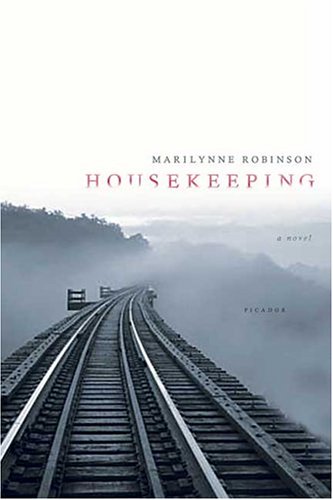Keeping House

In all my years of reading stories, I had yet to find an author who encompasses all aspects of my interests in style, landscape as character, memory and time, philosophical speculation, point of view, themes of impermanence, family relationships, history, and metaphoric language into one loosely bound "story." So, discovering Housekeeping was like receiving a gift from the universe. I wouldn't have appreciated it had I not read Ethan Canin's stories, as he often talked about Robinson as being one his favorite contemporary writers (they teach together at the University of Iowa), and had I not been interested in style, figurative language through the likes of Nabakov and Woolf, I would not have been drawn to what Robinson accomplishes in this novel. I can honestly say that her writing, more than any other writer changed my thinking as a writer, about how to balance all the aforementioned elements and combine them into a story that is (although not riveting, eschewing plot for language and imagery) so much more than the sum of its constituent parts).
What I find appealing in this novel may not be what others appreciate. Since I read for the discovery of new sentence forms, gorgeous sentences that surprise, that astonish, that have the same precision and power as poetry, others may want more, namely plot. But when I read a sentence like the following I am left speechless: "A narrow pond would form in the orchard, water clear as air covering grass and black leaves and fallen branches, all around it black leaves and drenched grass and fallen branches, and on it, slight as an image in an eye, sky, clouds, trees, our hovering faces and our cold hands."
Her novel reminded me that a novel need not be a chain of cause and effect relationships, with rising action leading to a climax and then a falling action or denouement; that a novel could be fluid, building laterally, layer upon layer, letting images do the heavy work of plot. A writer who exploits the novel medium's strengths by manipulating time and memory, by going deep into character psychology, by making imagery and language the focus, yields pleasures that no traditional (by that I mean plot driven) narrative can accomplish. A novel could be lyrical, and by being lyrical, stunning.
It is the one novel I have read more than any of the others, and the one novel that I will continue to read more than any other.
Comments
Post a Comment